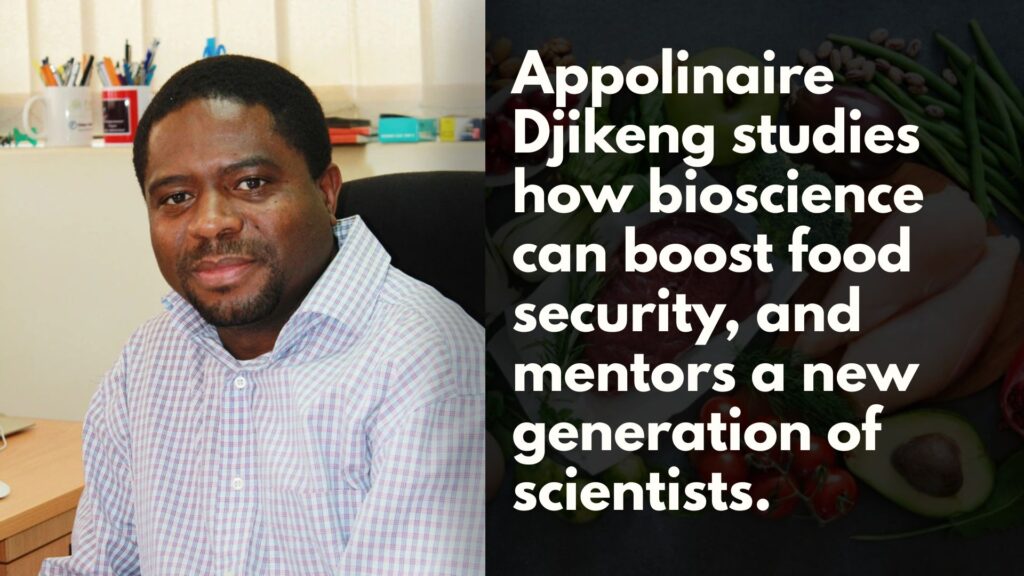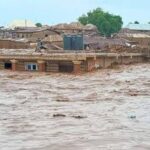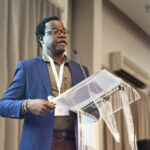Professor Appolinaire Djikeng is a molecular biologist, based in Kenya, who believes passionately in harnessing sustainable genetic improvements for African livestock.
Originally from Cameroon, Djikeng is director of the Nairobi-based International Livestock Research Institute (ILRI) and senior director for the livestock systems of the CGIAR.
With more than 20 years of research, management and institutional development experience in academia and international research institutions in Africa, Europe and the USA, his work and interests have been primarily on biosciences, genomics and related disciplines.
Previously, he was director of the Centre for Tropical Livestock Genetics and Health (CTLGH), and professor of tropical agriculture and sustainable development at Scotland’s University of Edinburgh.
Djikeng co-founded the African Animal Breeding Network (AABNET) with the aim of driving the development and dissemination of sustainable genetic improvement solutions in Africa. He also co-founded the African Biogenome project (AfricaBP) – a community of practice of scientists and related professionals, policymakers and stakeholders with the aim of harnessing the power of genomics for the characterisation, conservation, and sustainable use of biodiversity in Africa.
What inspired you to become a scientist?
My first two career choices were medical doctor or high school teacher, but I failed to secure admission, so becoming a scientist was the only option left. I was very fortunate to be mentored by two great professors in Cameroon – Kamanyi Albert and Lazare Kaptue – who introduced me to scientific research and the rigour and integrity it entails. Following a good stint in their research teams, I received a prestigious scholarship for PhD studies from the World Health Organization and ILRI for work on African trypanosomes. While at ILRI in Kenya, I was exposed to numerous opportunities and started to appreciate the importance of research for creating solutions that address key problems; in this case, human sleeping sickness diseases, which are also deadly diseases of cattle in Africa and South America.
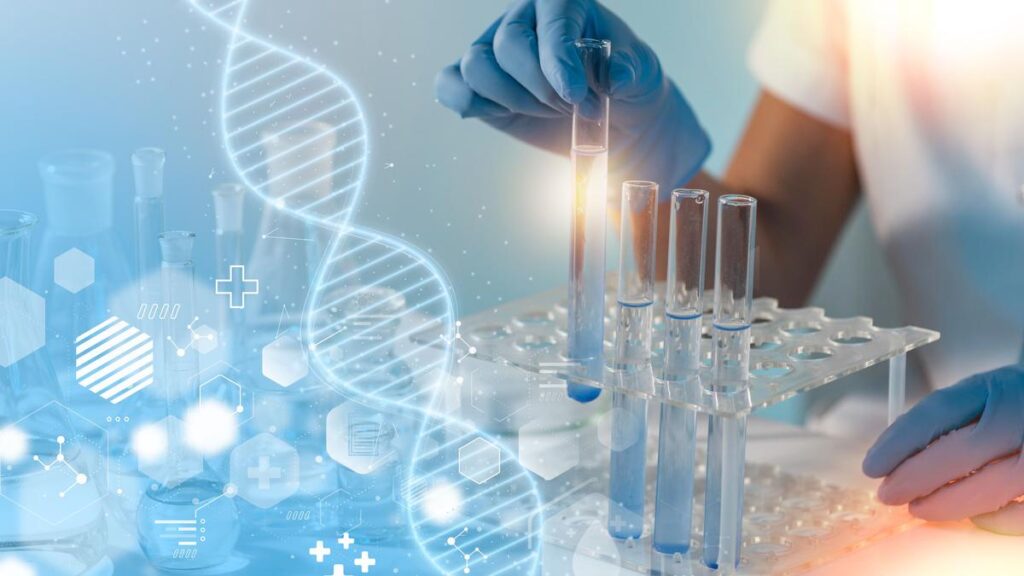
What motivated you to become a molecular biologist?
Molecular biology is central to our ability to understand how any living organism functions and evolves. It is also behind the process of polymerase chain reaction (PCR), which I had learned in our little lab in Cameroon had many types of applications. These included confirmational diagnostic of HIV infection, a topic that I had started to study in Cameroon. I wanted to study molecular biology with the intention to establish my own research group in Cameroon and use techniques that were in high demand with limited capacity in the country. It was a discipline with a wide range of applications.
In your earlier years at BecA-ILRI, you had a vision of helping Africa to feed itself through biosciences. How significant is the contribution of biosciences to food security today?
It remains central to the African agricultural transformation agenda. Innovations are critical to the many challenges that we must address right away: climate, low productivity of crops and animals, food safety, and misuse of antibiotics. We also must build more capacity for bioscience research.
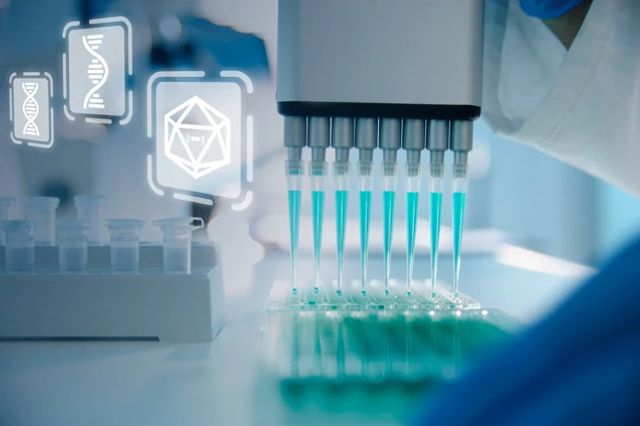
Is livestock research in Africa where it is supposed to be?
No, livestock research in Africa needs more attention. The livestock sector supports millions of smallholder farmers and pastoralists, providing them with income, employment and trade opportunities. Against the threat of climate change, innovative research on climate-smart livestock systems can help mitigate greenhouse gas emissions through improved feeds, better genetics, and manure management. We also need to consider the role of preserving indigenous breeds to support the adaptation to heat stress and disease resistance. There is much to be done.
What are the major milestones in livestock research that Africa can boast of in recent years, especially through the work at ILRI?
ILRI’s significant milestones include genomic innovations that support disease resistance and improved productivity in indigenous breeds like Ankole cattle. Some notable projects include the African Asian Dairy Genetics Gains Project.
It has also made advancements in identifying vaccine candidates for diseases such as African swine fever, which improves disease control and food security.
And finally, ILRI has led research to map antibiotic resistance across livestock, wildlife and the environment while strengthening zoonotic disease surveillance and improving food safety in the informal markets. These breakthroughs have shaped policies in Africa.
What is the biggest lesson from your experience abroad that is critical to your work at ILRI and as a scientist today?
At a professional level: Science is something that cannot be done by one individual, one institution or one country in isolation. You must be part of the community and must be trusted through your attitude and respected through the quality of your work. At a personal level: I learned that home is home. Your home is where you can fully express your empathy, get full motivation, and the right level of energy to address the issues that you are determined to solve.
Tell us about AABNet, the organisation you founded.
AABNet is a collaborative platform that advances livestock genetic improvements across the continent by connecting researchers, policymakers and other stakeholders. It supports multi-country professional training and advocacy with the aim of promoting data-sharing, research collaboration and strategic partnership to improve breeding programs and promote sustainable livestock systems. What sets AABNet apart is its ability to bridge science and practice.
AABNet isn’t only about the science, it’s about people. A big goal of the network is to train and mentor the next generation of African breeders, ensuring they remain on the continent and empower African countries to take the lead in setting their own genetic improvement priorities.
If we can get this right, livestock production will be more resilient, sustainable, and capable of meeting Africa’s growing demand for animal-sourced foods, all while strengthening rural livelihoods and food security.

